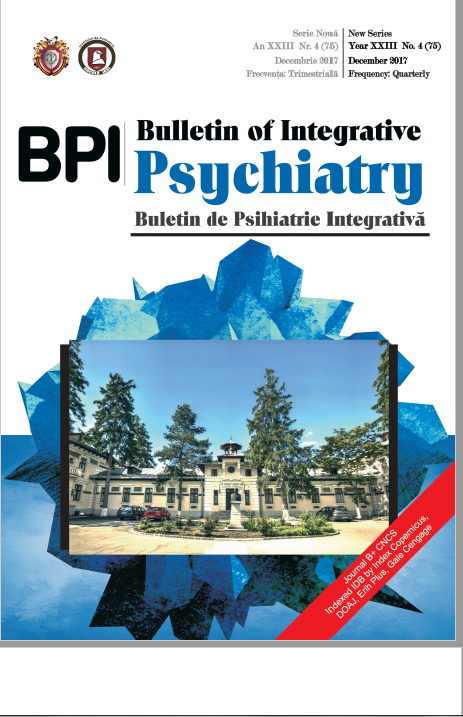Ethical aspects in forensic psychiatry
Ethical aspects in forensic psychiatry
Author(s): Bianca Hanganu, Andreea Alexandra Velnic, Valentin Petre-Ciudin, Dragos Crauciuc, Irina Smaranda Manoilescu, Beatrice Gabriela IoanSubject(s): Psychology, Ethics / Practical Philosophy, Health and medicine and law
Published by: Editura Sedcom Libris Iasi
Keywords: forensic psychiatry; ethical dilemma; law; human dignity;
Summary/Abstract: As a discipline at the border between mental health and law, forensic psychiatry is a subspecialty of general clinical psychiatry, recognized as such in a large number of countries. This paper analyses the ethical framework in which the forensic psychiatrist is operating, in terms of its bi-directional training, both medical and legislative, while pursuing the professional risks to which it is exposed. Through the activity carried out and through the knowledge of medicine and legislation, the forensic psychiatrist provides to the courts essential information regarding the presence of psychological disorders in persons who have committed antisocial acts, their criminal responsibility, as well as the recommendations of therapy or hospitalization. Its activity is not without professional, legal as well as ethical challenges, the latter category being especially particular, in terms of confidentiality, consent, autonomy, pursuit of the patient's well-being without harming the population, but also regarding the doctor-patient relationship, which it loses its classical therapeutic meaning, turning into an examiner-examinee relationship. Although ethical dilemmas are numerous and generally divided, most experts agree that honesty and objectivity, together with respect for humanity of the person being examined, must be the basis for practicing the profession, while creating new tools to improve mental health practices will be very useful.
Journal: Buletin de Psihiatrie Integrativa
- Issue Year: 75/2017
- Issue No: 4
- Page Range: 72-78
- Page Count: 7
- Language: English

